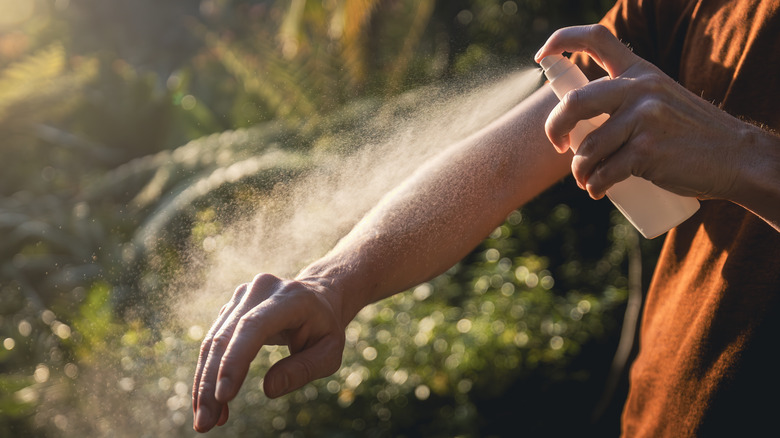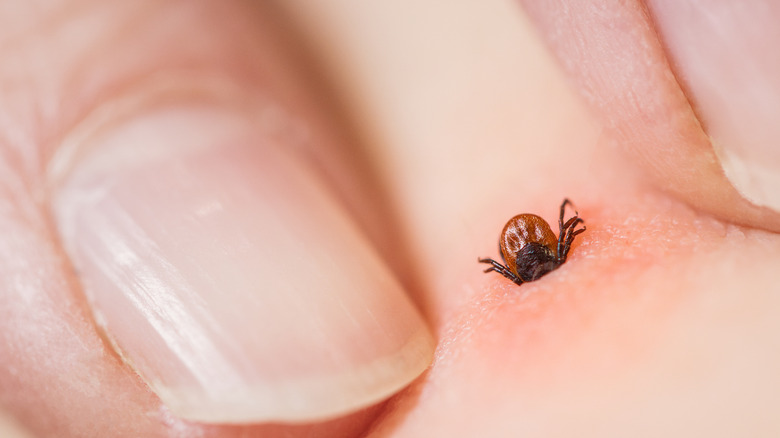Is Rubbing Alcohol The Key To Getting Rid Of Ticks? Here's What We Know
Ticks are one of the most common arachnids found across the United States, making tick safety to avoid bites a very real concern. Many people wonder whether rubbing alcohol is an effective solution for getting rid of them. The short answer is yes — rubbing alcohol can kill ticks, but only after they've been removed from your skin. Emma Grace Crumbley, an entomologist at Mosquito Squad, explains that rubbing alcohol works by dehydrating ticks. "Rubbing alcohol is a volatile compound, meaning it evaporates very quickly and removes moisture from the area it's applied to," she says. Since ticks rely on moisture to survive, exposing them to alcohol can cause them to dry out and die.
However, rubbing alcohol won't help in removing a tick that has already attached itself to your skin. Crumbley clarifies, "Ticks have barbed mouthparts that saw through the skin and anchor in when feeding." This makes it impossible for rubbing alcohol to encourage the tick to detach once it's latched on. In fact, spraying or applying rubbing alcohol to the tick won't cause it to flee — it may still kill the tick, but it won't prompt it to loosen its grip.
When it comes to properly removing a tick, Crumbley recommends using a pair of fine-tipped tweezers to grasp it as close to the skin as possible, pulling it straight out without twisting. Once the tick is removed, place it in a container filled with rubbing alcohol to ensure it's killed. "Disinfect the bite mark with sterile rubbing alcohol" after removal, she advises. This step helps prevent infection, as there are many dangerous diseases that ticks spread.
What are the limitations of using rubbing alcohol for tick removal?
While rubbing alcohol can kill ticks after they've been removed, it has several limitations that you should be aware of. First and foremost, Crumbley notes that rubbing alcohol is not designed to be an insecticide. "[It] is not registered with the EPA as a pesticide," she says, which means it's not a reliable method for controlling tick populations in your yard or home. Furthermore, rubbing alcohol is volatile and can evaporate quickly, especially if the bottle has been left open. "If rubbing alcohol has expired or evaporated significantly, it may not be an effective disinfectant anymore," Crumbley adds. This means it might not work well for killing ticks if it's old or improperly stored.
Another key limitation is that rubbing alcohol needs to be used correctly to be effective. "You need to submerge the tick in enough rubbing alcohol to coat and drown it," Crumbley explains. Simply spraying or misting the tick will not guarantee its death.
Safety is another important consideration when using rubbing alcohol. Crumbley points out that rubbing alcohol is highly flammable, which can pose a significant fire risk. "Always label your containers," she advises, and store rubbing alcohol away from open flames. When it comes to pets, Crumbley strongly advises against using rubbing alcohol to remove ticks from animals. "[It] can irritate your pets' skin and cause stinging when applied," she says. Instead, after removing the tick from a pet, use warm water and soap to clean the bite area, or invest in a tick key, which you should always carry while camping, as well.

